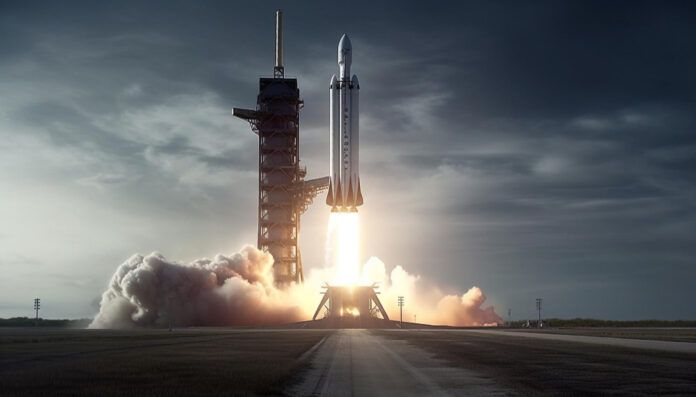Tokyo-based startup’s satellite mission ends in explosion shortly after takeoff
A recent attempt by the Tokyo-based startup, Space One, to carve its name into history by launching a satellite into orbit ended abruptly when its Kairos rocket exploded seconds after liftoff. The incident occurred on Tuesday at 11.01 am (02:01 GMT), marking a significant setback for the company’s ambitions.
Space One’s Kairos rocket, a 60-foot, four-stage solid-fuel vehicle, met a fiery end shortly after its journey began from the Kii peninsula in western Japan. Livestreams captured the dramatic explosion, showing flames and smoke filling the air while burning debris descended onto the nearby mountain slopes. Emergency sprinkler systems were activated in an attempt to mitigate the fire hazard.
The mission carried high stakes, as Kairos was tasked with deploying an experimental government satellite designed to serve as a temporary replacement for intelligence satellites in case of malfunction. The goal was to secure the satellite in orbit approximately 51 minutes following the launch. However, this objective remained unfulfilled as the mission was abruptly “interrupted,” a term used by Space One to describe the unfortunate turn of events.
The cause of the explosion remains unclear, and Space One has initiated an investigation. The company emphasized that the launch process was highly automated, requiring minimal personnel presence at the ground control centre, which suggests that human error was unlikely a direct cause. Fortunately, there were no immediate reports of injuries following the explosion.
This failure is a blow not only to Space One but also to Japan’s growing aspirations in the competitive space launch market. Despite being a relatively minor player, Japan seeks to capitalize on the increasing global demand for satellite launches, driven by both government initiatives and international clients. Space One, established in 2018 with support from major Japanese corporations and the Development Bank of Japan, aimed to provide “space courier services” to a broad clientele, with ambitious plans to launch 20 rockets annually by the late 2020s.
The setback comes in the wake of Japan’s mixed success in space endeavours, including the explosive test failure of another rocket engine last July and the successful launch of the H3, Japan Aerospace Exploration Agency’s (JAXA) new flagship rocket, after multiple delays and failures. JAXA’s achievements, including a recent “soft landing” on the Moon, highlight the highs and lows of Japan’s space exploration efforts.
As Space One and its backers reassess their next steps, the global space community watches closely. The incident serves as a reminder of the inherent risks and challenges of space exploration, even as technology and automation advance. Japan’s determination to secure a place in the competitive space launch market remains undeterred, with lessons learned from each setback paving the way for future successes.
